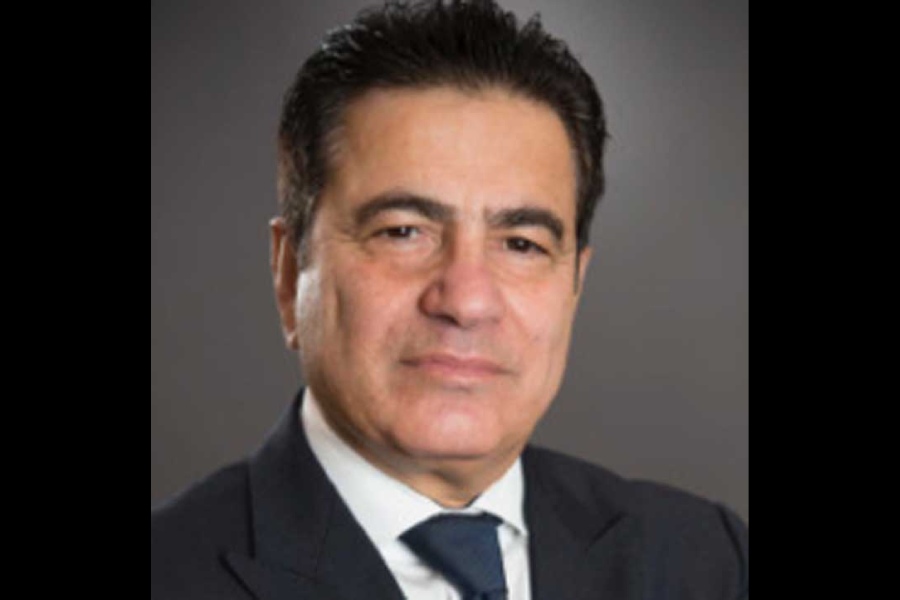USISPF president and CEO Mukesh Aghi on Friday said it was “unfortunate” that Canadian Prime Minister Justin Trudeau’s allegations against India in his parliament last month were brought “without concrete evidence”.
Tensions flared between the two nations after Trudeau's allegation linking Indian agents to the killing of Khalistani separatist leader Hardeep Singh Nijjar in June.
India strongly rejected the charges and also voiced its concern over the safety of Indian diplomats and India's diplomatic premises in Canada.
“It’s unfortunate that an important issue was brought without any concrete evidence into the parliament and from there the relationship between the two nations has gone down,” Aghi, the president of US-India Strategic Partnership Forum, told PTI in an interview.
“The relationship goes way back between the two countries. You have a large trade, over 230,000 Indian students studying there. Canada has invested almost $55 billion in India and it's unfortunate that a country’s prime minister goes into a parliament and says “credible allegation” and not being able to come out with evidence to show that those allegations are credible,” he said.
“I think mature minds have to take over and calm the situation as this has an impact, because Canada is going to leverage the United States to put pressure on India,” Aghi said.
Responding to a question, Aghi felt that the diplomatic row between Canada and India would have an impact on India-US relationship, but in the long term the bilateral relationship between the two countries would continue to grow deeper and broader.
“The US-India relationship is geopolitical. It is tied to economic issues and the Indian-American diaspora. Yes, it will have an impact, but in the long term the relationship will continue to grow deeper and broader itself,” he said.
According to Aghi, the allegations by the Canadian prime minister were driven by domestic politics and his dependence on a Sikh dominated party for his own political survival.
“There are two factors. One is domestic politics. The NDP, which supports Prime Minister Trudeau, is a Sikh dominated party. So, you have to have that vote coming in. So domestic politics took over, national interest,” he said.
“And that's a pity because you always drive national interest first before you drive domestic politics. The second factor is that the conversation between PM Trudeau and PM Narendra Modi for the second time was not very warm and healthy. I think Trudeau felt upset about that and that also rolled into his statement in the parliament,” Aghi said.
He said India is a rising power, if it wants to be a great power, it has to be a responsible power. As far as the market goes, geopolitics goes, India's importance will get more and more stronger.
“We have to understand, nations have to protect their interest,” Aghi said.
“In this case, you have Khalistanis for the last 20 years basically creating challenges for India. The bombing of Air India where 329 people died, only one person was prosecuted. Completely shameful the process the way they handled it. I think as far as where it goes for India, I think yes, India will face some challenges in the short term, but in the long term I think India will keep on continuing rising as an economic power and as a global power,” Aghi said.
In response to a question, the USISPF chief said what is happening in Canada is not free speech.
“When you look at the statements coming out, you are taking ballots in British Columbia to create a separate Khalistan. You're having floats which are celebrating assassination of former Prime Minister of India Indira Gandhi. This is not free speech. This is all about trying to create that sense of or target towards India itself,” he said.
“I don't think that's healthy and Canada should have talked about this, worked with India from that perspective. We (Canada) talk (about) Nijjar a simple plumber, but if you look at his background, he's a convict. And they talk about him using a machine gun in a shooting gallery itself. I think the story and the narrative from Canada is so different from the story and narrative from India's perspective. I think both countries have to sit down and find out and …. deal with this,” he said.
When asked if he senses, an anti-India undercurrent in the US as well, he said, “What we have seen is the progressive left, especially the media seems to project him (Modi) as a demagogue, basically not understanding that here is a government in the last almost nine and a half years has brought 300 million people out of poverty,” he said.
On social media, he noted, one can see China is inflaming the whole situation.
“Yes, it does benefit. Because if it can derail the relationship between India and the US it is in the interest of China. We also have to be very cautious and mature about it to make sure that we don't derail the whole process we have created in the last 20 years itself. So the onus is on India, onus is on the United States to make sure the relationship does not get derailed because it's a win-win relationship between the two countries,” Aghi said.
Except for the headline, this story has not been edited by The Telegraph Online staff and has been published from a syndicated feed.










